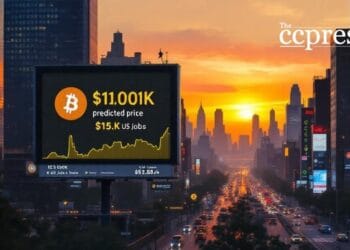- Valuation driven by Edwards’ Energy Value model.
- Fair price claim indicates 40% discount.
- Market reaction remains tempered as of now.

The statement underscores Bitcoin’s intrinsic value disparity, potentially affecting market perceptions and investment strategies.
Market Analysis and Reaction
Charles Edwards, renowned for his cryptocurrency analysis, has claimed that Bitcoin is trading significantly below its “intrinsic value.” He places Bitcoin’s fair value at $130,000, contrasting sharply with the current trading price of $93,000.
“We are one year post Halving and Bitcoin is trading at a whopping 40% discount to its intrinsic value.” – Charles Edwards, Founder, Capriole Investments, source
Edwards bases his claim on the innovative “Energy Value” model. This model evaluates Bitcoin’s intrinsic worth by assessing energy input data. His statement arrives one year after Bitcoin’s last halving event.
The crypto community and market have shown a positive initial response. Bitcoin had appreciated from $80,000 to $93,000, indicating bullish market sentiment before Edwards’ assertion.
No immediate financial or institutional changes have been noted, causing market reactions to show moderation. Regulatory bodies and major financial institutions are yet to comment on this valuation claim.
Future Implications
While market conditions initially buoyed Bitcoin’s rise to $93,000, the long-term implications of Edwards’ prediction depend on broader economic factors and technological developments.
Future Bitcoin pricing could see influences from regulatory changes, shifts in energy consumption, and technological advancements in blockchain. Historical valuation predictions, like the Stock-to-Flow model, have occasionally impacted short-term prices, signaling similar potential here.
| Disclaimer: The content on The CCPress is provided for informational purposes only and should not be considered financial or investment advice. Cryptocurrency investments carry inherent risks. Please consult a qualified financial advisor before making any investment decisions. |


























